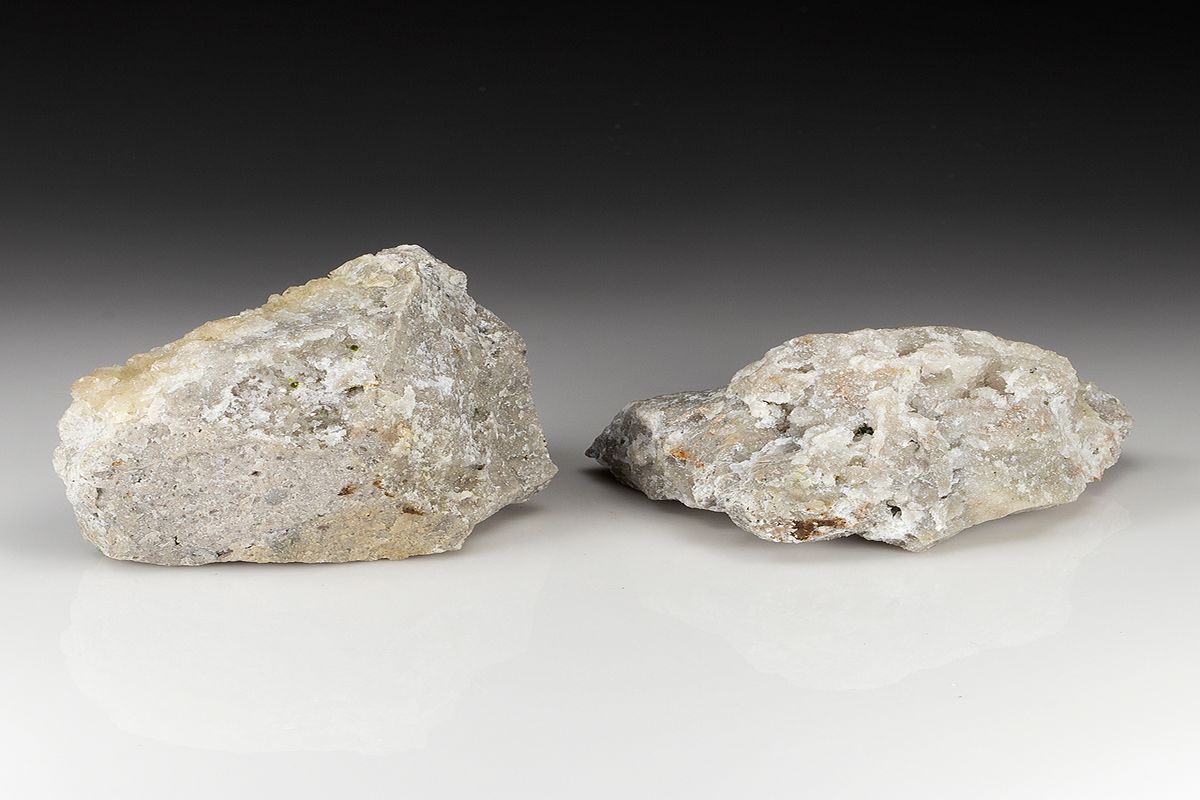
Rodalquilarite is a rare and intriguing mineral that has captured the attention of geologists and mineral enthusiasts alike. Found primarily in the Rodalquilar mining district of Spain, this mineral boasts a unique composition and striking appearance. What makes Rodalquilarite so special? For starters, it contains a fascinating mix of elements, including tellurium, which is quite uncommon in minerals. Its vibrant yellow-green color and crystal structure make it a standout in any collection. Beyond its beauty, Rodalquilarite holds significant scientific value, offering insights into the geological processes that form such rare minerals. Whether you're a seasoned geologist or just curious about the natural world, learning about Rodalquilarite can be both educational and exciting.
Key Takeaways:
- Rodalquilarite is a rare green mineral found in Spain, the US, Mexico, and Australia. It's loved by collectors and used in scientific research and geology studies due to its unique properties.
- With its striking green color and tiny crystals, Rodalquilarite is a fascinating mineral named after the place it was first discovered. Its rarity and beauty make it a prized find for collectors and researchers alike.
What is Rodalquilarite?
Rodalquilarite is a rare mineral that fascinates geologists and mineral enthusiasts alike. Found in specific locations, it has unique properties that make it stand out. Here are some intriguing facts about this mineral.
-
Rodalquilarite was first discovered in the Rodalquilar mining district in Spain, which is how it got its name.
-
The mineral is composed of tellurium, oxygen, and sulfur, making it a tellurate mineral.
-
Its chemical formula is H3Fe3+2(TeO3)4·3H2O.
-
Rodalquilarite typically forms in oxidized zones of tellurium-bearing hydrothermal deposits.
-
The mineral is known for its striking green color, which can range from light to dark shades.
Physical Properties of Rodalquilarite
Understanding the physical properties of Rodalquilarite can help identify it in the field. Here are some key characteristics.
-
Rodalquilarite has a monoclinic crystal system, meaning its crystal structure is asymmetrical.
-
The mineral has a Mohs hardness of 2.5, making it relatively soft.
-
It has a vitreous to silky luster, giving it a shiny appearance.
-
Rodalquilarite has a specific gravity of 3.6, which is considered average for minerals.
-
The mineral is transparent to translucent, allowing light to pass through it to some degree.
Occurrence and Locations
Rodalquilarite is not found everywhere. Its occurrence is limited to specific geological settings. Here are some notable locations.
-
Besides Spain, Rodalquilarite has been found in the United States, particularly in Nevada and Colorado.
-
The mineral also occurs in Mexico, specifically in the Moctezuma mine in Sonora.
-
In Australia, Rodalquilarite has been discovered in the Northern Territory.
-
The mineral is often associated with other tellurium minerals like emmonsite and tellurite.
-
Rodalquilarite is typically found in small quantities, making it a rare mineral.
Uses and Applications
While Rodalquilarite is not widely used in industry, it has some interesting applications. Here are a few.
-
The mineral is primarily of interest to collectors due to its rarity and unique properties.
-
Rodalquilarite can be used in scientific research to study tellurium and its compounds.
-
It serves as an indicator mineral for geologists exploring tellurium-rich deposits.
-
The mineral's vibrant color makes it a subject of interest in mineralogical studies.
-
Rodalquilarite can also be used in educational settings to teach students about rare minerals.
Interesting Facts
There are some lesser-known but fascinating aspects of Rodalquilarite. Here are a few more facts.
-
Rodalquilarite was named in 1968 by mineralogists who first studied it.
-
The mineral's name is pronounced "roh-dal-kee-lar-ite."
-
Rodalquilarite crystals are often tiny, usually less than a millimeter in size.
-
The mineral can sometimes be found in museum collections due to its rarity and beauty.
-
Rodalquilarite's green color is due to the presence of iron in its chemical structure.
The Final Word on Rodalquilarite
Rodalquilarite, a rare mineral, fascinates both geologists and collectors. Found mainly in the Rodalquilar mining district of Spain, it boasts a unique greenish-yellow hue. Its chemical composition, primarily a mix of tellurium and selenium, makes it distinct. This mineral forms under specific conditions, often in hydrothermal veins. Its rarity and unique properties make it a sought-after specimen.
For those interested in geology or mineral collection, rodalquilarite offers a glimpse into the Earth's complex processes. Its discovery and study provide valuable insights into mineral formation and the geological history of its region. Whether you're a seasoned collector or a curious novice, rodalquilarite is a gem worth exploring. Keep an eye out for this intriguing mineral, and you might just add a rare piece to your collection.
Frequently Asked Questions
Was this page helpful?
Our commitment to delivering trustworthy and engaging content is at the heart of what we do. Each fact on our site is contributed by real users like you, bringing a wealth of diverse insights and information. To ensure the highest standards of accuracy and reliability, our dedicated editors meticulously review each submission. This process guarantees that the facts we share are not only fascinating but also credible. Trust in our commitment to quality and authenticity as you explore and learn with us.
